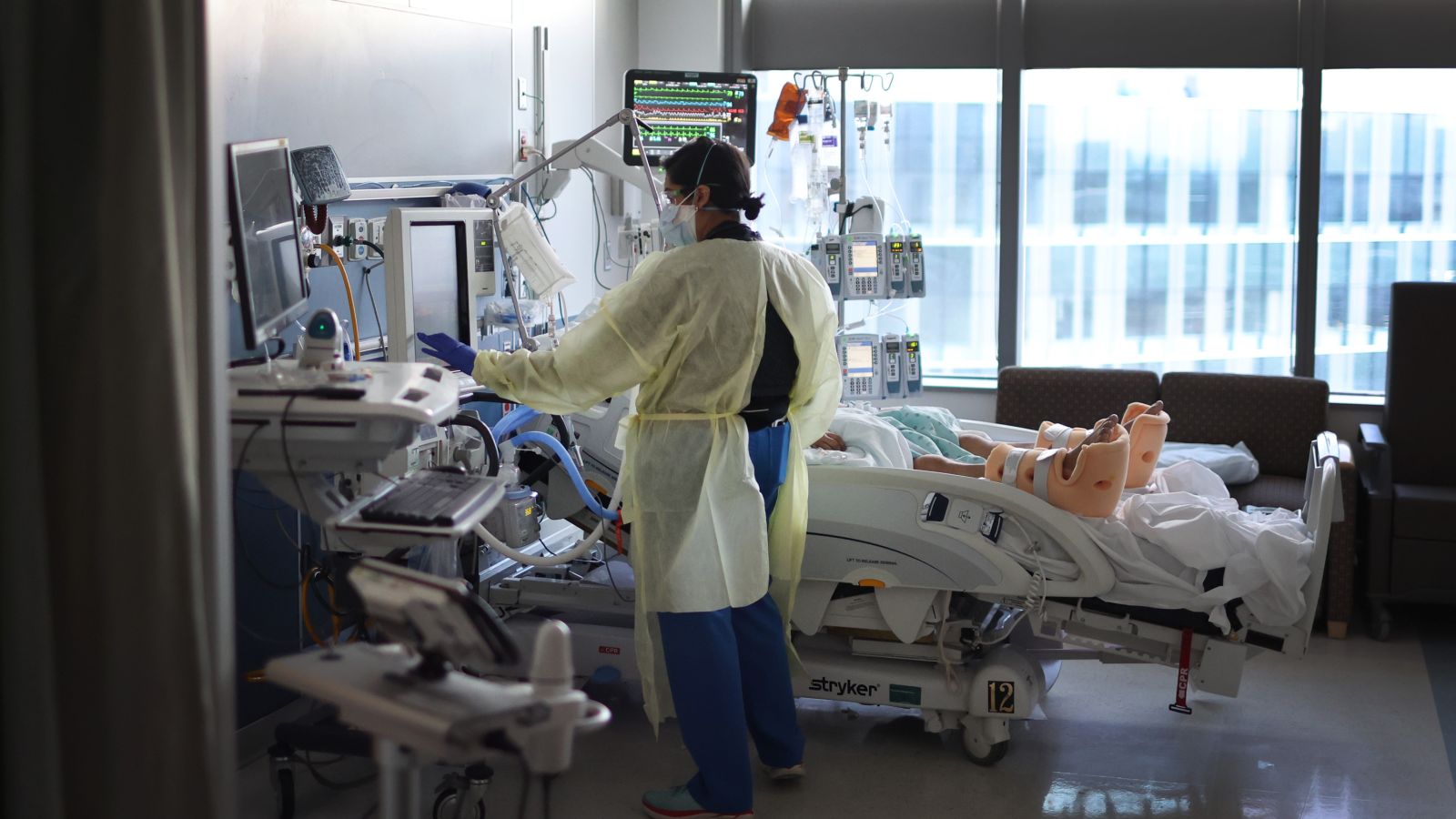Overall cancer mortality decreased by 33% since 1991 1:05
(CNN) --
The United States spends more on health care than any other high-income country, but has the lowest life expectancy at birth and the highest rate of people with multiple chronic diseases, according to a new report from The Commonwealth Fund. , an independent research group.
The report, released Tuesday, also says that, compared with other countries, the US has the highest rate of deaths from preventable or treatable causes and the highest rate of maternal and infant deaths.
"Americans are living shorter and less healthy lives because our health system is not working as it should," the report's lead author Munira Gunja, a senior fellow at The International Health Policy and Practice Innovation Program, said in a statement. Commonwealth Fund.
“To catch up with other high-income countries, the government and Congress would have to expand access to health care, move aggressively to control costs, and invest in equity in health and social services that we know can lead to a healthier population.
Biden plans to end the national covid-19 and public health emergency on May 11
Americans see doctors less frequently than they do in most other countries, which is likely related to the fact that the US has a below-average number of practicing physicians, according to the report, and Furthermore, it is the only country among those studied that does not have universal health coverage.
In 2021 alone, 8.6% of the US population did not have health insurance.
“Not only is the United States the only country we studied that does not have universal health coverage, but its health system appears designed to discourage people from using services,” the Commonwealth Fund researchers wrote in the report, with headquarters in New York.
“Affordability remains the leading reason some Americans don't sign up for health coverage, while high out-of-pocket costs mean nearly half of working-age adults stop or delay getting needed care” .
advertising
An outlier in relation to spending and results
The researchers analyzed health statistics from international sources, including the Organization for Economic Co-operation and Development (OECD), which tracks and reports data on health systems in 38 high-income countries.
The data was collected in December.
The researchers looked at the United States compared to Australia, Canada, France, Germany, Japan, the Netherlands, New Zealand, Norway, South Korea, Sweden, Switzerland, and the United Kingdom.
They also compared the US to the OECD average for 38 high-income countries.
The data showed that in 2021 alone, the US spent nearly twice the OECD average on health care, and US health spending was three to four times that of South Korea, New Zealand and Japan.
Globally, healthcare spending has increased since the 1980s, according to the report, driven primarily by advances in medical technologies, rising healthcare costs and increased demand for services.
The US has the highest rate of people with multiple chronic health conditions, the data showed, and the highest rate of obesity of the countries studied.
Life expectancy at birth in the US in 2020 was 77 years, three years below the OECD average, and early data suggests that life expectancy in the country fell further in 2021. At the start of the Covid-19 pandemic, more people died from the coronavirus in the US than in any other high-income country, according to the report.
Assault-related deaths also appear to be higher in the US compared to other similar countries.
The researchers found that deaths from physical assault — which includes gun violence — occurred at a rate of 7.4 deaths per 100,000 people in the US in 2020, significantly higher than the OECD average of 2.7. and at least seven times higher than most countries in the report.
Where the United States seems to do well is in cancer prevention and early cancer treatment.
Together with Sweden, it has the most breast cancer screenings among women aged 50-69, and it exceeds the OECD average for colorectal cancer screening rates.
Respiratory viruses strain America's healthcare systems, Biden administration tells states how ready it is to help
Another article published in mid-January said that the US cancer death rate had fallen 33% since 1991, corresponding to an estimated 3.8 million deaths averted.
Overall, the new Commonwealth Fund report "continues to demonstrate the importance of international comparisons," Reginald D. Williams II, who heads the Commonwealth Fund's International Program, said in the news release.
“It offers an opportunity for the US to learn from other countries and build a better health care system that provides high-quality, affordable health care for all.”
“We are not getting the best value for our money in health care”
Much of the data in the new report reflects trends that have been seen before.
“It validates the fact that we continue to spend more than anyone else and get the worst health outcomes.
So we're not getting the best value for our money on health care,” said Dr. Georges Benjamin, executive director of the American Public Health Association, who was not involved in the new report.
“The big takeaway for me is that covid did not become the great equalizer [among nations].
He didn't help our case at all,” Benjamin said.
"If anything, he exposed the holes in our health care system."
To help patch the holes in the US health care system, Benjamin pointed to three issues the country needs to fix.
“We remain the only nation that does not have universal healthcare or access for all of our citizens,” Benjamin said.
Second, “we don't have as much prevention in primary care as in other countries, and we still have a public health system that is fractured,” he said.
“The third is that we invest less than other industrialized countries in social issues.
They spend their money on initial support for their citizens.
We spend our money caring for the sick.”
CNN's Deidre McPhillips contributed to this report.
Health System


/cloudfront-eu-central-1.images.arcpublishing.com/prisa/K6S6W4EXJ5BQTOJZKVLQCIZDQY.jpg)






